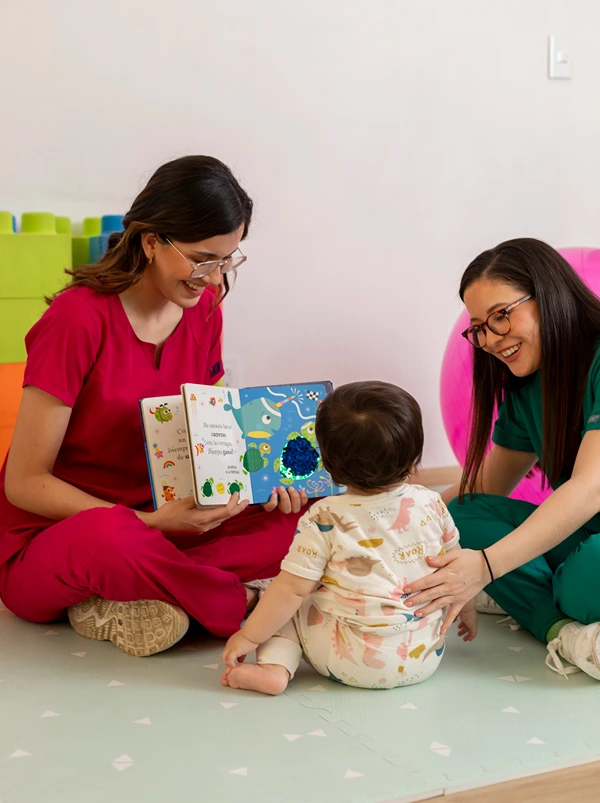Importance of Language Acquisition for Early Childhood Education
Language is one of the most important skills a child develops in early childhood. It goes beyond simply learning words—it is the foundation for communication, learning, social interaction, and emotional growth. It helps children share their needs and explore new ideas.
Understanding the stages of language acquisition and supporting children during these critical years can make a significant difference in their overall development.
What is Language Acquisition?
Language acquisition is the process by which children learn to understand and communicate through language. From the first coos and babbles to forming complete sentences, children pass through several stages of language development. These language acquisition stages are predictable and provide educators and parents with a framework for supporting children’s growth.
- Pre-linguistic Stage (0–6 months): Babies communicate through crying, cooing, and gestures. These early interactions are crucial, as they form the foundation for later language development.
- Holophrastic Stage (12–18 months): Children begin using single words to express complete thoughts, such as saying “milk” to mean “I want milk.”
- Two-word Stage (18–24 months): Children start combining two words to form basic sentences, for example, “want cookie.”
- Early Multi-word Stage (24–30 months): Children begin forming longer sentences with clearer structure.
- Later Multi-word Stage (30+ months): Children can use complex sentences, express detailed ideas, and hold meaningful conversations.
Each stage shows how children build previous skills, highlighting the importance of a rich, interactive language environment. For more detailed insights, see this article on language acquisition stages.
Why Language Acquisition is Crucial in Early Childhood
-
Cognitive Development
Language and thinking are closely linked. Children who develop strong language skills are better able to solve problems, follow instructions, and process information. Developing vocabulary and comprehension at an early age lays the groundwork for critical thinking and intellectual growth.
-
Academic Success
Early language skills are a strong predictor of academic achievement. Children who understand sentence structure, storytelling, and vocabulary tend to excel in reading, writing, and overall school performance. Encouraging language-rich activities prepares children for lifelong learning.
-
Social Skills
Children rely on language to interact with peers, form friendships, and communicate needs and emotions. Effective communication enhances collaboration, conflict resolution, and empathy, supporting healthy social development.
-
Emotional Expression
Children who can articulate feelings are better equipped to manage emotions. Language allows them to express happiness, frustration, or curiosity, fostering emotional intelligence and resilience.
-
Cultural Awareness and Identity
Language also connects children to their culture, family traditions, and community. Early exposure to language helps children understand social norms, appreciate diversity, and develop a sense of identity. By hearing stories, songs, and conversations from different perspectives, children gain cultural knowledge alongside communication skills.
Strategies to Support Language Development
Parents and educators can actively support children’s language growth through intentional activities:
- Engage in Conversations: Regularly talk with children and encourage them to express thoughts. Open-ended questions spark critical thinking.
- Read Aloud Daily: Books expose children to new words and ideas. Discussing stories encourages comprehension and storytelling skills.
- Provide Rich Vocabulary: Introduce new words in context. Label objects, explain concepts, and narrate daily routines.
- Encourage Play: Role-playing, pretend games, and interactive activities allow children to practice language naturally.
- Positive Reinforcement: Praise efforts in communication to build confidence and motivation.
Implementing these strategies consistently helps children develop strong language skills that support both academic and personal growth.
Integrating Language Acquisition in Early Childhood Education
Teachers and caregivers play a pivotal role in nurturing language development. Classroom environments that encourage verbal interaction, storytelling, group discussions, and reading activities provide multiple opportunities for children to practice language. Pairing structured lessons with playful language learning allows children to experiment with words, ask questions, and express themselves freely.
Additionally, incorporating technology, such as educational apps or interactive storytelling programs, can supplement traditional learning methods. Using digital resources in moderation helps children explore language in fun, interactive ways. Combining these tools with face-to-face interactions ensures children experience language holistically, preparing them for both school and everyday life.
Using articles like effective reading strategies for children can also provide educators with practical ideas to strengthen literacy and language skills simultaneously.
Conclusion
Language acquisition in early childhood is more than a developmental milestone—it is the key to learning, social interaction, emotional growth, and cultural understanding. By understanding the stages of language acquisition, providing supportive environments, and engaging children in meaningful communication, parents and educators can ensure children develop strong language skills.
Encouraging early communication, fostering curiosity, and creating a language-rich environment ensures children are confident, expressive, and ready to explore the world through words. Early investment in language development lays the foundation for academic success, social competence, and lifelong learning. Moreover, it helps children develop critical thinking skills, strengthens problem-solving abilities, and enhances their capacity to form meaningful relationships. By nurturing language skills from a young age, we also empower children to engage actively with their communities, express their ideas clearly, and adapt effectively to new social and educational challenges.






